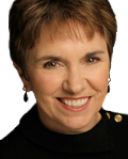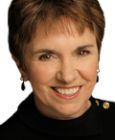Alcoholism
Best Little Boy in the World
He'd search for alcohol, drugs, like egg hunting Easter morning
Posted February 15, 2011


And now he was waiting at the school corner for his mother to pick him up. This was always the hardest moment. What will she look like, how will she sound? Michael could tell right away if she had been drinking; the muffled voice, the pale, unmade-up face. He really didn't know what it was all about. He just knew that when Dad came home he would fight with her. Argue, yell, scream, and run. Michael could hear them through the closed doors and over the humming of the air conditioner. He wondered if the neighbors could hear, too. Hold it in. Don't tell anyone.
He was still waiting at the corner. She was late. It was so good to go to school and get out of the house. But when three o'clock came he would feel the tension begin to gather inside him. He never knew what to expect. When she was not drinking, or smoking the joints, she would be smiling, even pretty. When drunk, she'd be cold, withdrawn, tired, unloving, and not caring. Or just flat spacy. Then sometimes she disappeared. He didn't know where.
Michael would cook dinner and straighten up the house. He would search for the alcohol, the drugs, like egg hunting on Easter morning, under the stuffed chair in the bedroom in the laundry bag concealed among the towels, behind her clothes in the closet. When he found any stash, he got rid of it. . Maybe then no one would know. Maybe no one would fight. Don't tell a soul.
She still hadn't come to pick him up yet. She'd never been this late. Sometimes she'd sleep late in the morning after Dad had already left for work. Then a friend's mother would take him to school. A big problem was wanting to play with his friends. But he was afraid to bring them home. He was afraid to go out and play, too, because then she would drink. Michael didn't want to be blamed for that. So he stayed in and did his homework and read. He didn't tell his friends. Hold it in.
And still he was waiting alone on the corner. Michael decided to walk the ten blocks home. He felt that he was old enough now. After all, he took care of his little sister and mother. He was responsible. He always did what people told him to do. Everyone could count on him for help. Everyone did. And he never complained. Never fought, never argued, never yelled. The best little boy in the world. Hold it in.
When he got nearer to home Michael's heart felt as if it were going to explode. Her car was there. The house was locked tight. He rang the bell. He rang and rang as he felt his stomach turn inside out. He climbed through a window. No one seemed to be home. He looked around the house, in all the right hiding places. Finally, in the closet in his own bedroom, he saw his mom in her underclothes, with a belt around her neck, and attached to the wooden rod. She was just sitting there, sobbing. She had been drinking for sure . But maybe no one would find out. Michael wouldn't tell anyone, ever. Hold it in. (author Peter Nardi)
Michael represents 1 out of every 4 children under the age of eighteen being raised in the United States in a family impacted by alcoholism and other substance abuse. February 13-19 is Children of Alcoholics Week. Everyone can play a role in reminding the children and the services in a position to influence them about the seven C's (I didn't cause it. I can't cure it. I can't control it. I can help take care of myself by communicating my feelings -making healthy choices and celebrating me.). It's important to remember this is not just a family problem, but a community problem. Everyone needs to ask what they can do to make a difference and then act. I strongly suggest you begin by taking a moment to go to NACoA and see the many resources they have that make this feasible.
And don't forget the children the other 51 weeks of the year.


